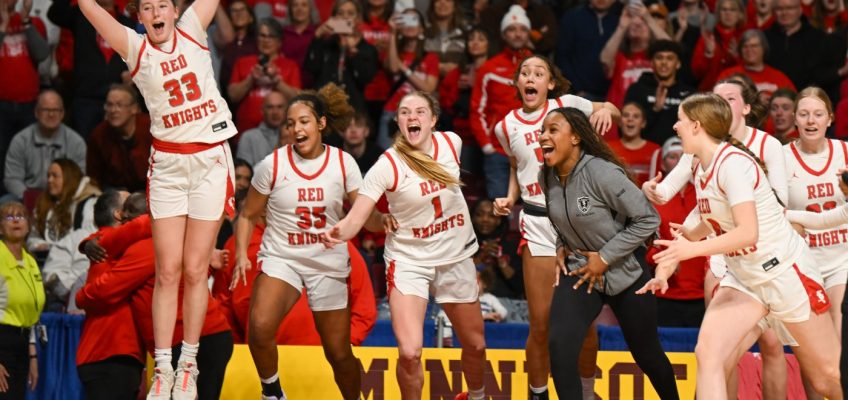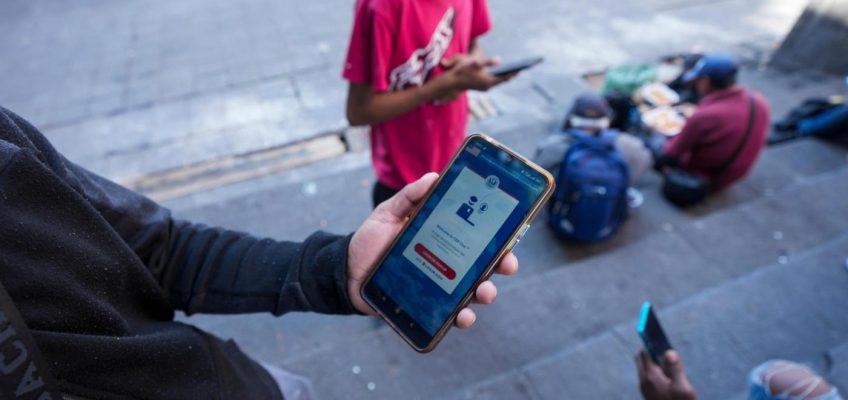DENVER — Let’s make this quick: Nathan MacKinnon’s fast. Every defenseman and goaltender around the league knows about his elite speed all too well.
Knowing that doesn’t make containing the hard-charging, fast-flying Colorado Avalanche forward any easier.
MacKinnon’s swiftness on the ice has led to an accelerated pace through the record books. His next goal or assist will join him with Hall of Famers Joe Sakic and Peter Stastny as the only skaters in franchise history to reach 1,000 points.
His next chance is Monday against Chicago at Ball Arena. If it doesn’t come there, the Avalanche are at Minnesota on Tuesday at Xcel Energy Center. Puck drop is set for 7 p.m. CDT.
The reigning NHL MVP also became the first player in the league this season to reach 100 points.
“He continues to impress me,” said Colorado coach Jared Bednar, whose team is 5-0 on a six-game homestand that concludes Monday against the Blackhawks. “He’s grown a lot as a player, as a leader, his consistency, the way he’s dangerous every time he touches the ice.
“It’s a tough league, and he still finds a way every night to get on the board and make an impact on the offensive side, all while being a good defender and growing his defensive game, too.”
MacKinnon’s not one to focus on individual milestones. But he will about team success. He likes the makeup of this new-look Avalanche squad, which in recent days has acquired Charlie Coyle, Brock Nelson, Ryan Lindgren, Jimmy Vesey and former teammate Erik Johnson.
“It’s great to get some veterans in, honestly,” MacKinnon said Saturday night after a 7-4 win over Toronto in which he had two goals. “They come in, they’re chatting, they’re getting to know everybody, they’re not shy at all, they’ve been around and they’re great players. … It’s a big change. It’s pretty cool how well we played.”
MacKinnon’s proven a quick study, too. When the Avalanche sent Mikko Rantanen to Carolina — Rantanen was later traded to Dallas — as part of a deal for Martin Necas on Jan. 24, MacKinnon brushed up on the tendencies of his newest linemate.
It’s led to quick chemistry with Necas, who has five goals and 11 assists over 15 games since joining the Avalanche.
“He’s an elite player,” Necas said of MacKinnon. “So fun to watch him.”
Unless, of course, you’re the opposition.
“If you don’t respect (his speed), he’s going to burn right by you,” said San Jose rookie Macklin Celebrini, the top overall pick in 2024.
Celebrini studies MacKinnon’s game to pick up tips.
“Nate’s speed, it’s not really something you can kind of replicate, just how powerful he is and how strong he is,” Celebrini said. “But his habits and his routes and his tendencies you can look at and see if you can try to emulate a little bit, or fit some of that into your game.”
MacKinnon has 27 goals and 73 assists this season to reach 100 points for a third straight season. The only other Avalanche/Nordiques player to accomplish a streak like that was Stastny, who had six straight 100-point seasons from 1980-81 to 1985-86.
The top pick in 2013, MacKinnon, 29, also is on the precipice of becoming the first player in his draft class to reach 1,000 points (362 goals, 637 assists). The next closest is Florida center Aleksander Barkov — the second overall pick — with 771 points.
In addition, MacKinnon has notched at least a point in 19 straight home games. It’s the second-longest home points streak of the season, trailing only Zach Werenski’s 22-game string from Nov. 1 to Feb. 22 for Columbus.
“We kind of see it every night, so we’re used to it almost,” teammate Jonathan Drouin said. “Someone that watches him once or every two weeks is probably like, ‘Oh, wow.’ For us, we’re used to how he plays, and you kind of expect that from him.
“We’re going to look back when we’re all done playing, look back at those years he had, and that’s when you will know how special of player he is.”
MacKinnon’s drive has certainly been contagious among teammates.
“You want to make sure you’re good, because he’s going to be good every night,” Avalanche goaltender Scott Wedgewood said. “He brings out the best in everybody, because he expects the best of himself. It’s a lot better to have him on your side than facing him.”
One last head-to-head for old teammates Crosby and Fleury
Midday malaise for Wild, who fall to Penguins
In March, standings points beat style points for Wild
‘They need a little boost right now,’ Wild GM Bill Guerin says of his team
For Wild’s Brock Faber, this reunion after international play was a relative breeze




